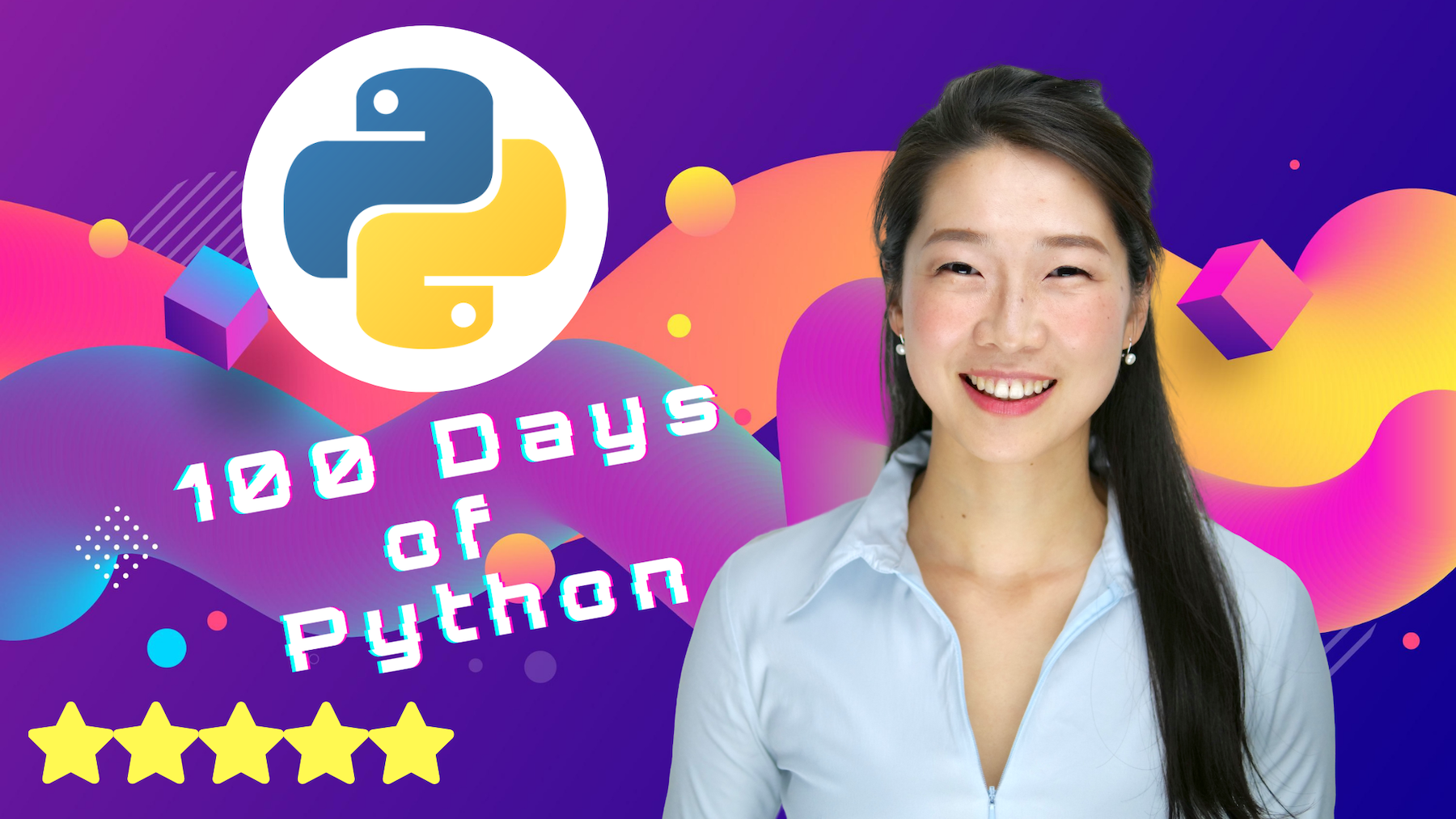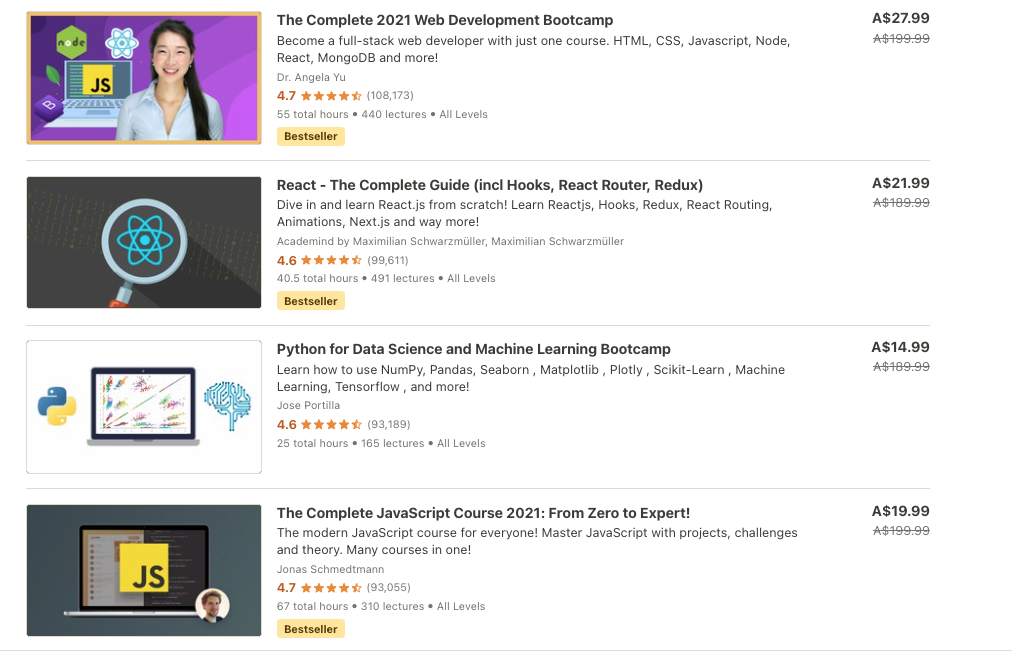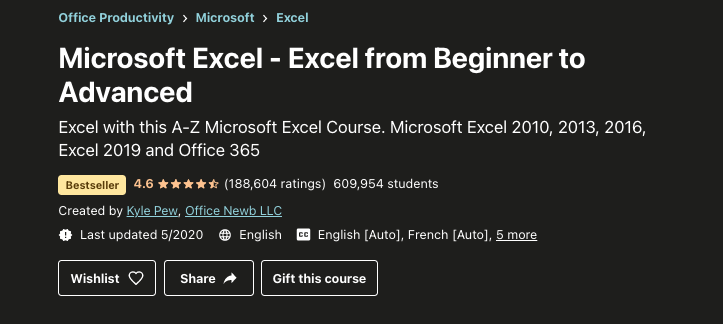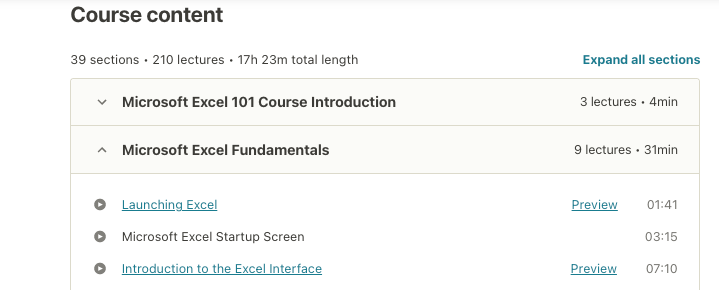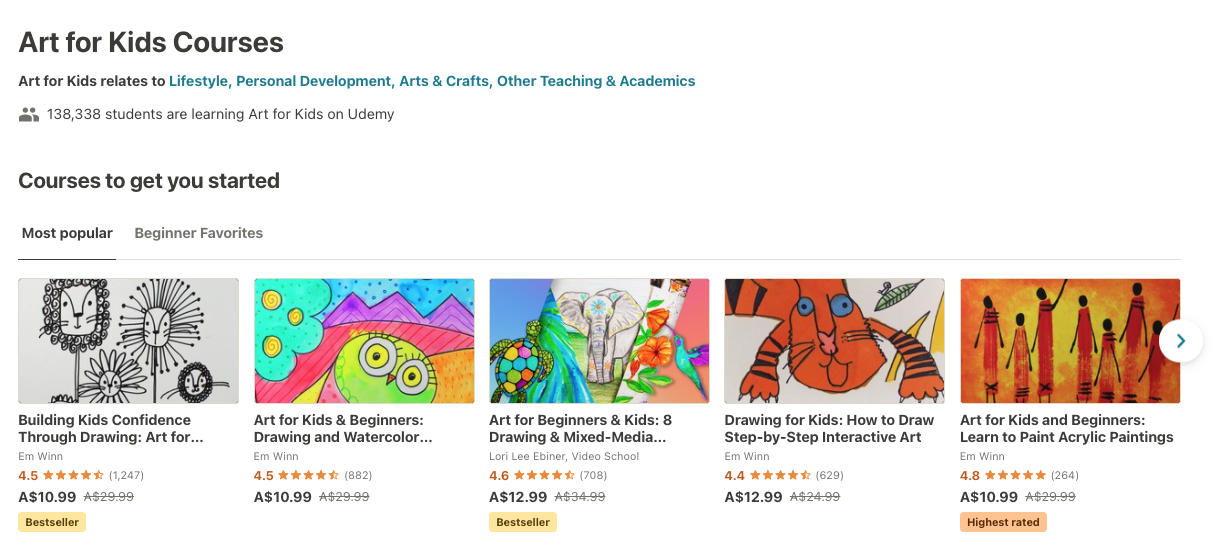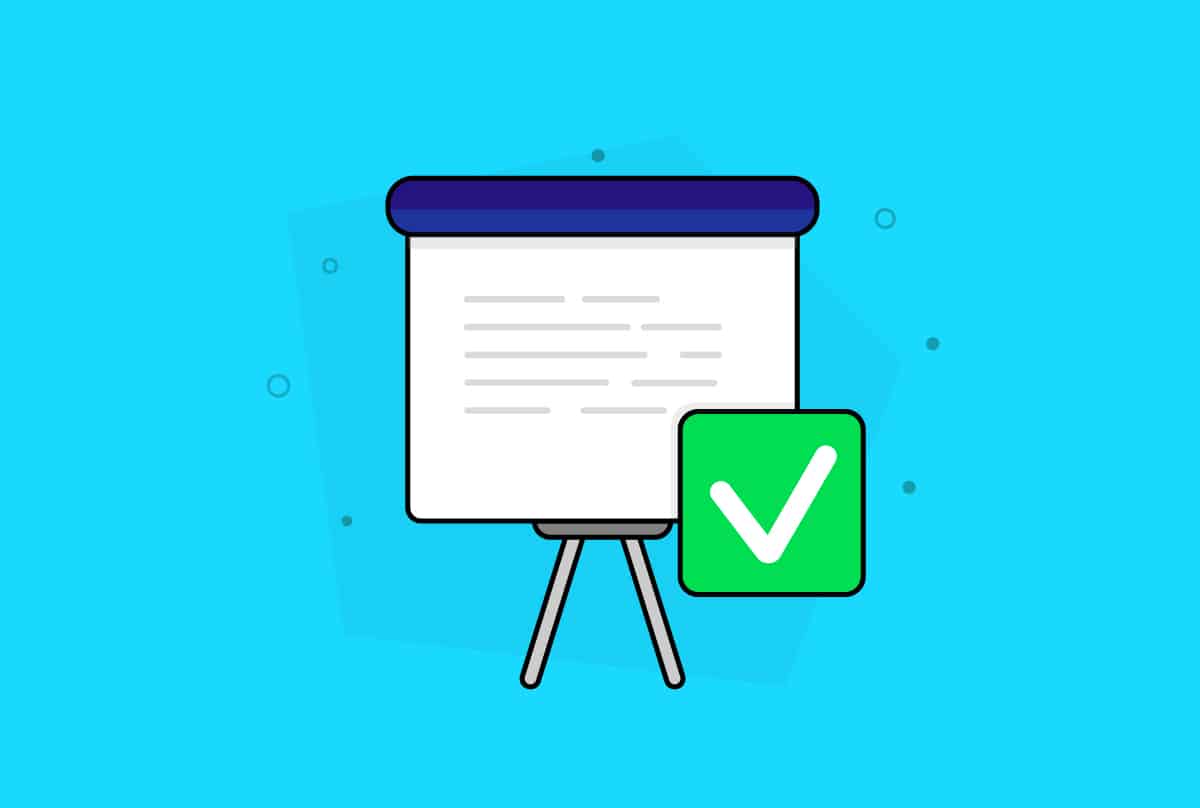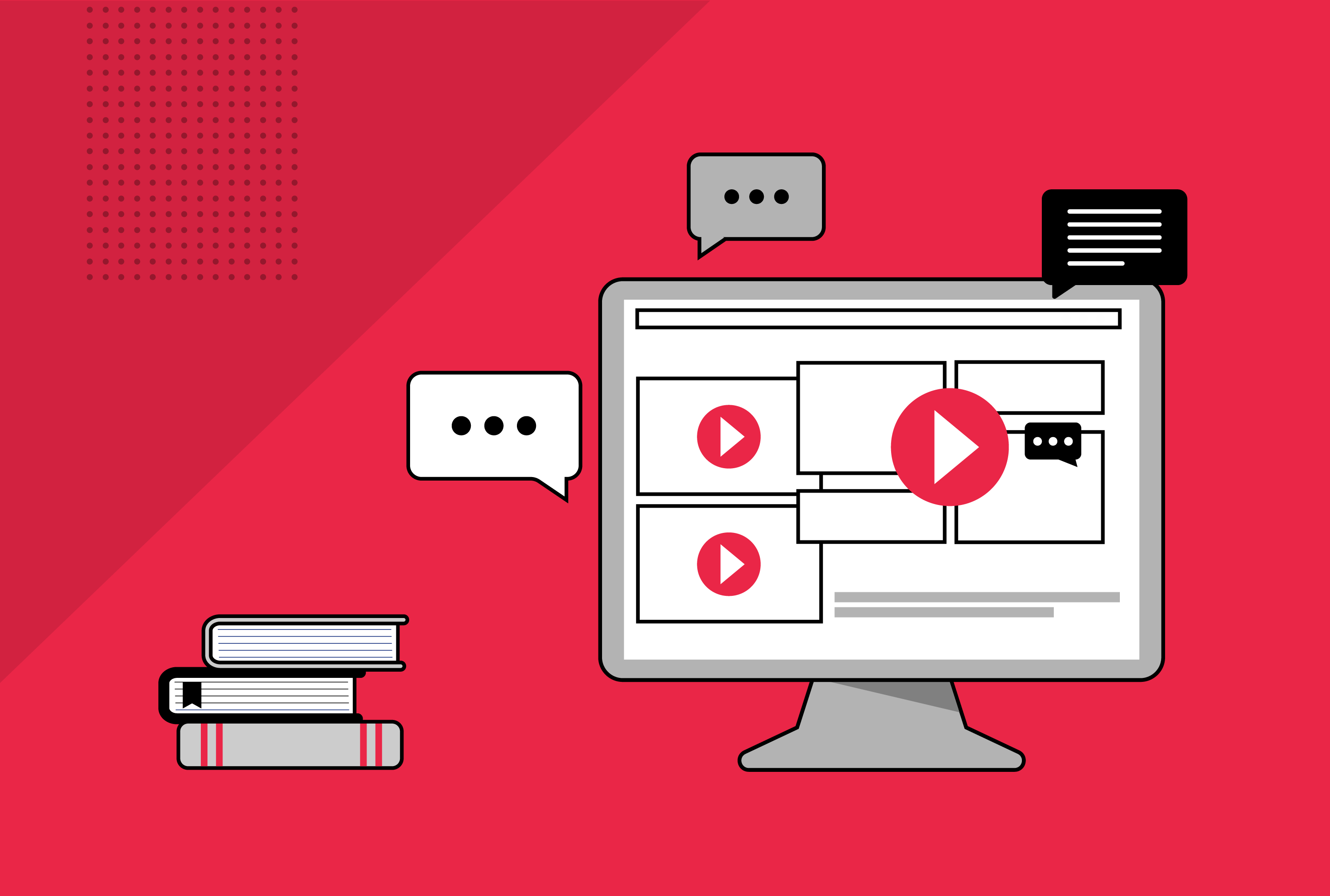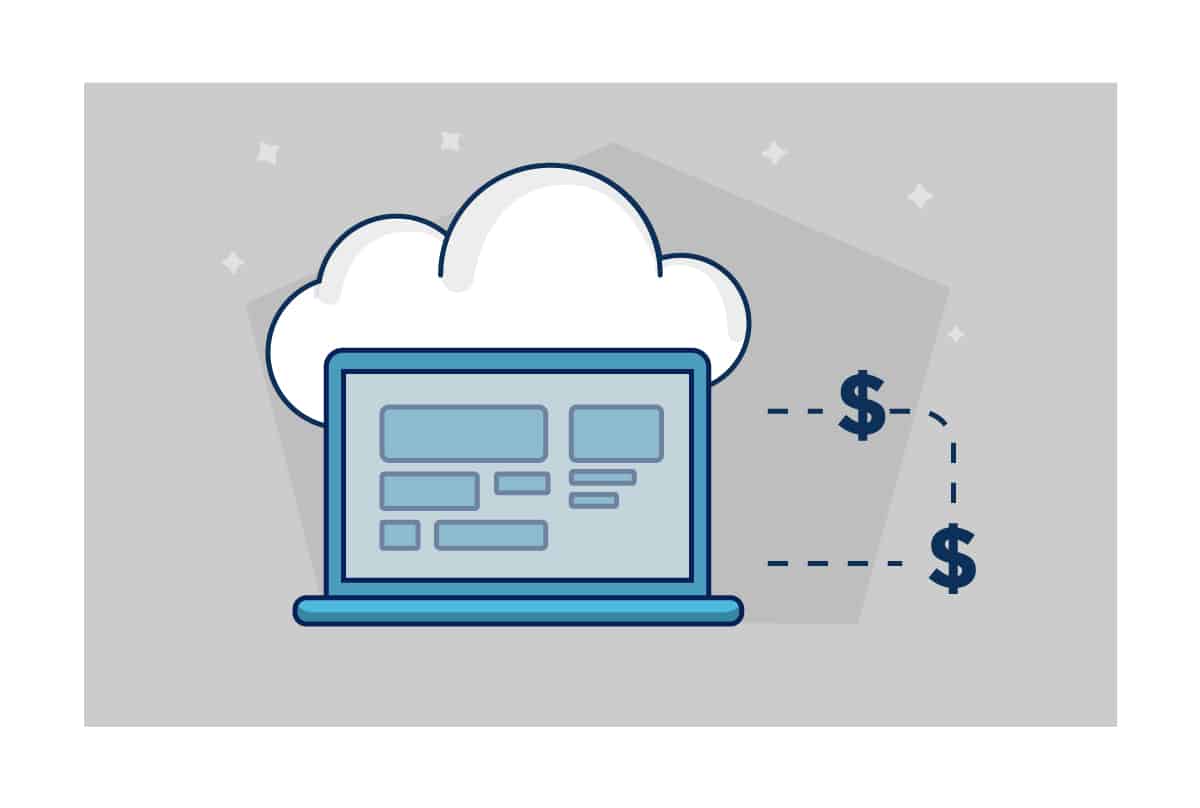Have you always wanted to create and sell an online course, but worried you can’t because you’re not an expert?
You’re not alone.
In fact, 33% of Americans admit that the fear of failure holds them back from entrepreneurship. That means that 33% of people surveyed are holding back from chasing their goals just because they think they’re not qualified enough, and if they do launch something they’ll only crash and burn.
If you’ve always dreamed of creating your own online course, but always worried it won’t work because you’re not an “expert”, then we have good news for you: you don’t need to be an expert to launch an online course.
When it comes to creating, launching, and selling an online course, you don’t need to be an expert at all. In fact, as you’ll see in the article below, sometimes being an expert in your chosen field will work against you.
If you can do something, even just the basic/beginner steps of something, then you can teach it to someone else.
It’s time to roll up your sleeves and get to work silencing that voice in your head that’s holding you back. Do it for the opportunities you’ll miss if you let your fear of failure stop you!
READ MORE: How to Create an Online Course Like Foundr
Get The Idea of an Expert Out Of Your Head
The dictionary definition of an expert is “a person who is very knowledgeable about or skillful in a particular area.”
Notice that there’s no bar in place to distinguish someone from being an expert or not.
An expert is someone who knows a lot about a topic, not someone who embodies the pinnacle of an entire topic.
Don’t let the word expert spook you into thinking that someone can reach a place in their journey where they have learned everything they can, and then the learning stops.
There will always be someone who knows something you don’t. An expert is someone who acknowledges this, and does all they can to continue the learning process.
For example, you might class Jamie Oliver as an expert chef. He has countless books, shows, restaurants, and has a clear authority when it comes to cooking. But in 2018, Jamie Oliver famously traveled around Italy for his new show Jamie Cooks Italy, with the goal of learning a more authentic, home-style cooking approach to Italian food.
In an interview in 2019, Oliver says that the “powerful thing” he learned from these women was discovering “how to un-cook”.
“And what I mean by that is to push away everything learned in ‘cheffy’ training and focus on love and care – actually we don’t need everything to be chopped the same size, as the imperfect is perfect.”
If we went by the stone-cold definition of expert, Jamie Oliver wouldn’t be learning from these cute nonnos and nonnas because he’s already an expert in cooking.
But in this tasty example, you can see that the learning experience is perpetual. There is always something new to learn, and there’s always someone who can teach you.
There is no “top of the ladder” when it comes to a subject or topic, and there is no universal teacher who owns a space. There will always be someone who knows more about a topic than you do, and this doesn’t discredit or diminish your own knowledge scope.
Just ask Jamie Oliver.
READ MORE: How Foundr Created it’s First Product Launch
How can I overcome self-doubt as an entrepreneur?
Squash That Imposter Syndrome
If you’re questioning your capability to create and sell an online course, chances are that you’re suffering from Imposter Syndrome.
Imposter Syndrome is when you compulsively find yourself questioning your skills and ability to do your job, and find yourself afraid that someone will expose you for being a “fraud”.
You may be in the habit of telling yourself that you only got to where you are through pure chance; that any success that comes with your online course is just dumb luck.
Does that sound like you?
Well, don’t stress.
It’s estimated that around 70% of people suffer from Imposter Syndrome at some point in their career, and you may be surprised to know that many of your heroes have faced the same problem.
In his 2019 commencement address at Queens College, guest Shark Tank judge Matt Higgins revealed that when he first sat beside Mark Cuban, Kevin O’Leary, and Daymond John on set, his only thought was “I don’t belong here.”
Starbucks’ Howard Schultz in an interview with The New York Times, said, “Very few people, whether you’ve been in that job before or not, get into the seat and believe today that they are now qualified to be the CEO. They’re not going to tell you that, but it’s true.”
Even Nobel Laureate, Maya Angelou, is in the same boat.
“I have written 11 books,” she said in an interview. “But each time I think, ‘uh oh, they’re going to find out now. I’ve run a game on everybody, and they’re going to find me out.'”
The American Psychological Association says that this “phenomenon occurs among high achievers who are unable to internalize and accept their success. Ultimately, the impostor phenomenon becomes a cycle. Afraid of being discovered as a fraud, people with impostor feelings go through contortions to do a project perfectly. When they succeed, they begin to believe all that anxiety and effort paid off.”
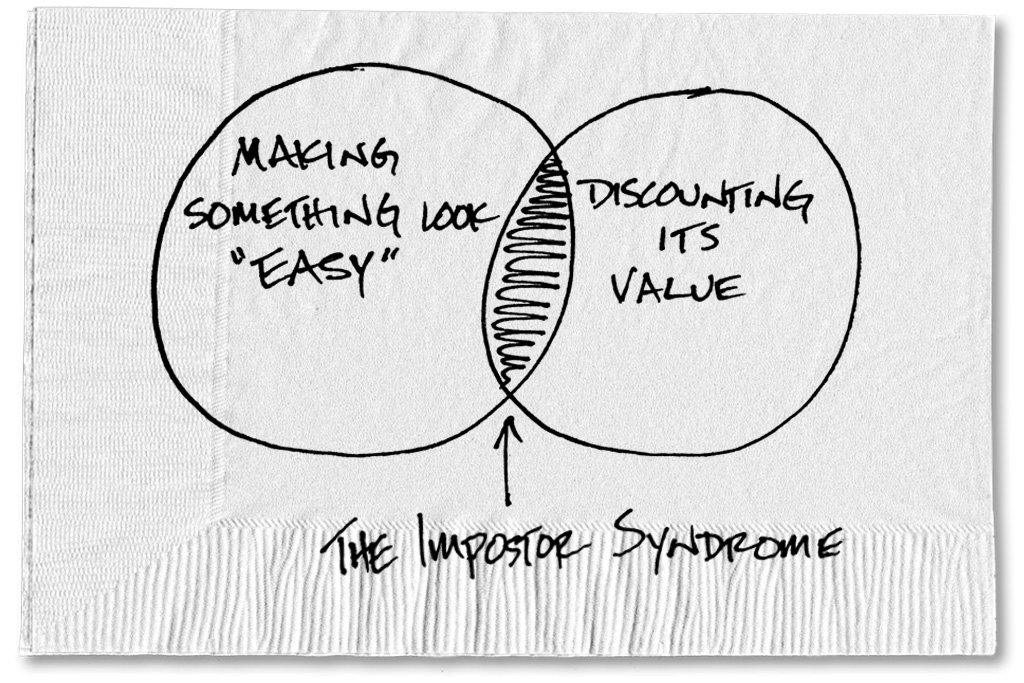
So, how can an entrepreneur break free of this? Experts and leading professionals have a few simple techniques to squash self-doubt once and for all.
Change Your Mindset
The best method to overcoming self-doubt is changing your mindset.
Simply put, your “mindset” is an established set of attitudes. Your attitudes affect how you react and act towards different challenges.
If you are suffering from self-doubt or imposter syndrome, you need to assess whether or not you have the wrong mindset in place. If you’re holding yourself back from launching an online course because you believe you have to be an expert to do so, then it may be an incorrect mindset that’s really holding you back.
As the saying goes, you are your own worst enemy.
Carol S. Dweck, the author of “Mindset: The New Psychology of Success“, has some pretty solid (and simple) methods to alter your mindset for the better.
In her book, Dweck says that a growth mindset is “the belief that an individual’s most basic abilities and skills can be developed through dedication and hard work—brains and talent are just the starting point”, while a fixed mindset is “the belief that an individual’s basic abilities and skills, their intelligence and their talents, are just fixed traits.”
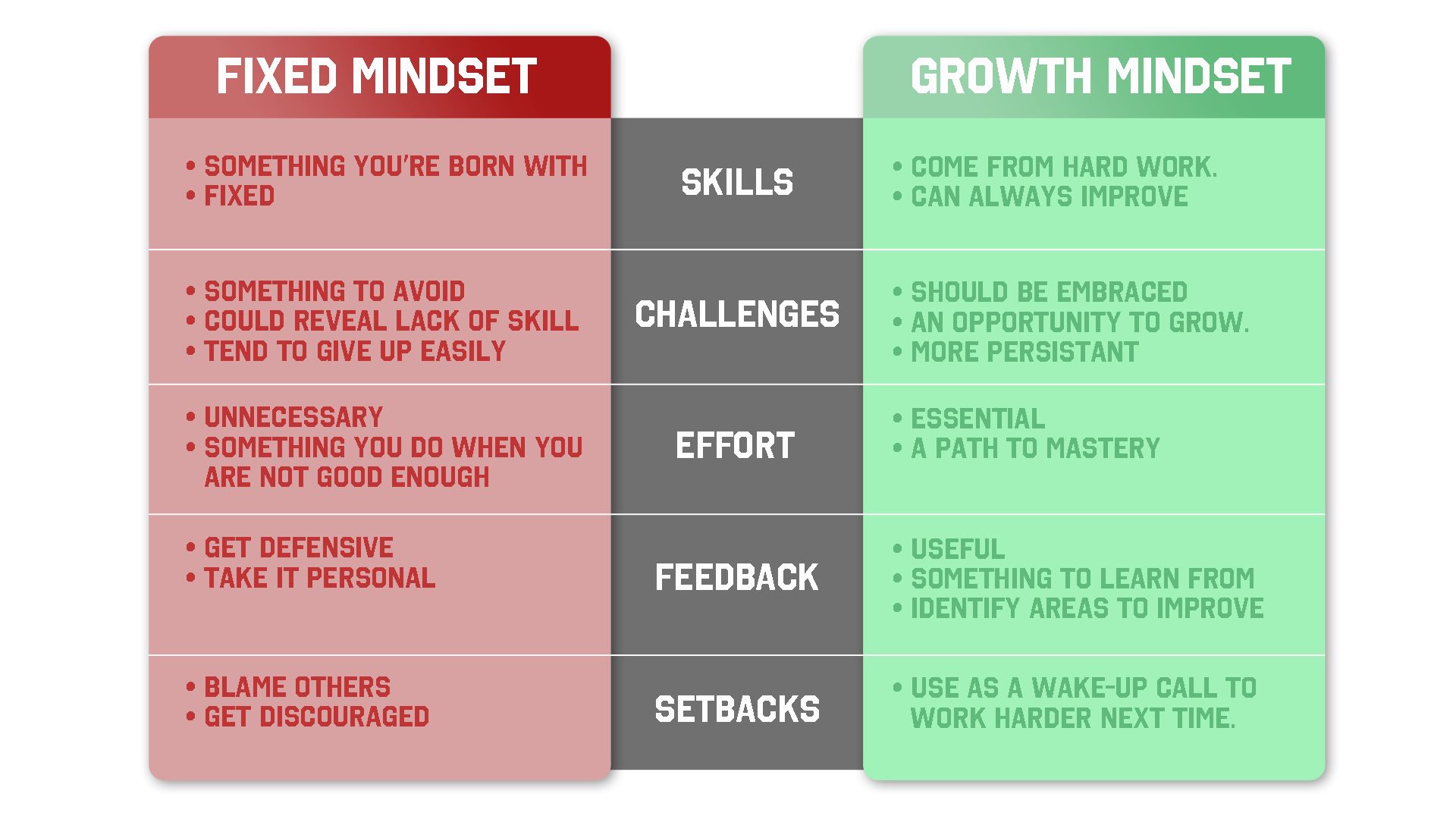
Examples of a fixed mindset vs. growth mindset are:
- I made a mistake/Mistakes help me to learn
- I am not good at public speaking and therefore will never be able to give a speech/I will need to work hard in order to improve my public speaking skills
You may unconsciously tell yourself that because you’re not worthy or credible enough to create your own online course and essentially talking yourself out of it.
You need to make the conscious decision to shift from a fixed mindset into a growth mindset, and it’s this shift that can make the difference between a regular entrepreneur and a great one.
Stuart Hearn, Founder of Clear Review, is quoted by Entrepreneur.com as summarising the importance of a growth mindset in entrepreneurs in the following way: “a growth mindset encourages experimentation and creativity….experimentation is one of the most important principles of startup growth and success.”
Launching a successful course and becoming the entrepreneur that you’ve always wanted to be might be as simple as changing your mindset from something more fixed, to something more growth-focussed.
READ MORE: How To Develop An Online Course
How To Adopt a Growth Mindset
We could write an entire library of books on ways to alter your mindset and adopt a more growth-centric focus, and people have!
As with everything in life, a growth mindset won’t magically happen overnight. Here are some simple tasks that you can start getting into the habit of gaining your new entrepreneurial mindset.
Practice Gratitude
Often one of those buzzwords and phrases you see littered around, practicing gratitude is something that shouldn’t be overlooked when it comes to business and mindset.
Scientific studies have shown time and time again the benefits of practicing gratitude and the positive effects it can have on your self-esteem, confidence, and overall wellbeing.
Practicing gratitude is a way of taking a moment to appreciate what you have.
Often in the entrepreneurship life, we think that we can only celebrate the “big” wins. We can only celebrate hitting 100k students, we can only be happy when we make our first million – these big milestones are definitely moments to celebrate, but it’s the small stepping stones we need to focus on in order to really feel fulfilled.
Take a moment to appreciate all the small moments. Everything from creating a to-do list for the week, to finally sending that email you’ve been dreading – even just reading this article is a huge milestone in your journey towards creating an online course.
Even negative moments can be an opportunity for gratitude.
As with a growth mindset, take something that you thought was a bad experience and instead ask yourself: what did I learn? how can I make this positive for myself?
Maybe your course isn’t getting the positive response you hoped for. Take the time to assess why it didn’t work, and appreciate that you had the opportunity to grow from it.
Mindfulness
Mindfulness is another method to boost self-esteem and stop negative self-talk.
Ariana Huffington shared: “The greatest obstacle for me has been the voice in my head that I call my obnoxious roommate. I wish someone would invent a tape recorder that we could attach to our brains to record everything we tell ourselves. We would realize how important it is to stop this negative self-talk. It means pushing back against our obnoxious roommate with a dose of wisdom.”
Take a moment to sit, meditate quietly, and focus on why you’re telling yourself that you’re not an expert and therefore cannot sell a course. Maybe just like Ariana Huffington, you have an obnoxious roommate in your mind who needs to be ignored.
Why Not Being an “Expert” is a Great Advantage?
You Can Teach With Fresh Eyes
Teachers and instructors often suffer from what is commonly referred to as the “expert blind spot”.
The Expert Blind spot occurs when you have a deep understanding of a subject, and you forget how difficult it was to learn the subject in the first place.
For example, an Olympic gymnast might be teaching an online course on backyard gymnastics. The Olympian starts their introductory lesson 1 with a guide on doing a standing back-flip. For the gymnast, this might be easy peasy, but for budding gymnasts who signed up for a beginners/basic course, this might be ridiculously advanced.
If a high-level marketing executive is teaching an online course on internal communications, they might forget that it took them years to learn how to craft the perfect email and not everyone can just “send out a few consulting emails”.
Not being an expert is an advantage because it allows you to be closer to the learning experience your students will have.
As leading education expert Dr. Domenico Masciotra says “do not teach what you know as an expert, teach only what the student is able to learn.”
Online courses are a great way to improve and build on your existing knowledge, helping you to become a little bit closer to “expert” status without getting the dreaded “expert blind spot”. It can help you to revisit and “re-learn” content you may have forgotten.
Your Experience is Unique
There are only so many ways to do something. A morning yoga sequence, marketing strategies, learning French grammar – all of these skills follow formulas.
But there is an infinite number of ways that you can teach people how to follow a formula, adding your own unique steps and approach to the subject, and helping your student to learn the same skill but in a different way.
Not everyone learns the same way, some people find podcasts more engaging than rewriting from a textbook, and this is how you stand out from the competition.
Your method of teaching is your UVP.
For example, if you’re looking to teach web development, some people may enjoy watching a YouTube clip where you explain each and every coding line, whereas some people may prefer to read your notes and then take a quiz to test their knowledge. Some people may even learn better if you use cute little cartoons and analogies to help them understand the web developing process more.
When you teach, you’re teaching what you know and how you interpret the topic. Your unique interpretation of coding is what will resonate with your students.
READ MORE: How to Build a Profitable Marketing Strategy
Find your Niche
Your niche is a place in the market for your specific skills and unique approach to a topic. It’s your area of specialty, and it’s what sets you apart from the millions of other courses online.
Think about what makes your course unique and your teaching style. This will be your niche.
Perhaps your teaching style is humor and jokes. You’re naturally a comedian with excellent comic timing, and want to keep your course light. Or maybe you are more inclined towards long academic lessons, with a heavy focus on research.
Let’s have a look at web development and coding as a subject.
There is probably close to a million different courses that will teach you online web development, and what makes each course unique is their style of teaching the topic.
Dr. Angela Yu has almost 670k students, with 70k students taking her 100 Days of Python Course on Udemy.
There might be slight variations in the content matter, but the end goal of the course is the same: be skillful at Python. With over 2,000 individual courses teaching the same topic, Python, Dr. Yu has identified her niche and stood out from the rest.
Her courses are fun, colorful, and she is a cheerful instructor who helps to make the subject matter engaging through her perky personality.
Her courses stand out from the rest of the Python coding courses not because she is more of an expert than everyone else, but because her style appeals to a different market than the other courses.
Check out her thumbnail in the Python lineup.
See where your teaching style can stand out from the pack.
Perhaps your method of teaching pilates is less about explaining each movement, and instead, it’s more focused on showing each movement with a volunteer. Or maybe you notice that there are not many courses on indoor plant care with high-quality production?
Your teaching style could be something as simple as using voiceovers vs. no voice-overs, to something more obscure like teaching how to knit sweaters while JaRule’s discography plays in the background.
Your style is ultimately what makes your course likable, so take as much time as you need to see what you can do.
READ MORE:The Ultimate List of Every Tool You Need To Create Your Online Course
Not Everyone Wants To Be An Expert
Good news!
Not everyone wants to go to the Olympics to represent their country in archery, some people just want to learn how to shoot a bow and arrow and have a little fun.
Most people aren’t looking for an elite teacher who can take them to the top of the ladder, they’re just looking for a general space in which they can learn a new skill.
If your skill level is what’s holding you back from creating an online course, you need to remember that you don’t need to be the most knowledgeable person in your field. You just need to have a little knowledge on the topic that people can learn, and a better hook than the other courses in the space.
Fiction writing courses have become incredibly popular across the globe. Many people who sign up for these courses may dream of one day becoming the next JK Rowling or Stephen King, but not all of them are committed to reaching that level of expertise.
They may have lofty dreams of being a best-seller, but for now, they are only looking for an inspirational writing course to keep them entertained.
One of the most popular courses on Udemy is “Microsoft Excel – Excel from Beginner to Advanced”.
Does every single one of those 600k+ students aspire to become the next great Microsoft Excel user? Doubtful.
But 610k+ students felt that the level of education in this online course was suited to their level of learning.
Remember that while you might not be an expert in your subject, there are plenty of people out there who want to learn how to do something recreationally.
Teach What You Know
So, you’ve finally let go of the idea that you need to be some sort of “expert” to create and sell a course. What now?
Now, you define what you can teach, and you’re going to teach what you know.
Start by creating a list of your existing skills.
Do you work in internal comms? That means you have some experience with inter-office communication and emails. Are you a salesperson in a retail store that sells goldfish bowls? You have experience in both sales and in pet care for goldfish.
The key to creating a skills list is to keep it as simple as possible.
AD MORE: Entrepreneurs Who Are Killing it With Online Courses
Selling Your Skill Level
Now that you have your skill list, add dot points under each skill with the basics/101/absolutely beginner skills that come with it.
For example, if you’re an accountant and you’ve listed “Microsoft Excel” as one of your skills, you can also list:
- Basic Formulas and Functions
- Creating charts
And so on.
But another level down, and you have even more skills to explore
- Creating an excel document
- What each button does
- How to save your spreadsheet
And then, the cherry on top
- What is “Microsoft Excel”, and how is it used?
The wonderful thing about online courses is that there’s room for every level of expertise, and we mean every level.
One of the best sellers in Udemy’s “Tech” category is “Microsoft Excel – Excel from Beginner to Advanced” with 612k+ students. Have a look at the fundamentals lesson in the course:
They’ve dedicated almost 12 minutes of course screen time just to instruct you on how to launch Excel, and what the startup screen interface is for.
While not all 612k+ students signed up for this course just to learn this step (although they might have, we don’t know!), including the fundamentals of Microsoft Excel, meant that the course was completely inclusive regardless of existing skills.
Beginners feel more comfortable starting the course, and Intermediate and Expert users have the opportunity to revisit and maybe learn the basics.
On a scale of 1-10 knowledge, you might be sitting at a 4. This means that you can teach everyone from levels 1-3 how to get to where you are. A level 10 could do the same, but they may be too far up the ladder to truly relate to beginner’s hurdles.
Even if your course idea seems a little silly, (“how to boil an egg”, “how to pronounce the names of different cities in Iceland”), there will always be someone willing to learn the basics.
Validating your idea will help you to determine just how fruitful your course will be.
We say it time and time again here at Foundr, but let’s say it one more time.
Validate your idea.
You don’t have to be an expert to create and sell your course, but you should still make sure that you’re going to be selling something that people will want.
READ MORE: How We Validated 12 Online Courses Without Spending A Cent
Combine Your Skills
Let’s pretend that you’re looking to launch an art course for kids.
A quick search on Udemy shows that it’s a trending topic, with 138k+ students enrolled. Also, note that none of these courses are advertised as being taught by “expert artists”?
Now it’s time to see where your combination skills could slide in.
The best selling course in the “Arts For Kids” category is the first one listed above. The course is designed to help children build self-esteem and confidence through the medium of art.
The big selling point for this course is that it doesn’t just teach children how to draw and create art, but that it also aims to help build self-esteem and confidence.
The course instructor Em Winn isn’t touting that she’s an expert art teacher or a leading psychologist, instead, she’s found the gentle middle ground where her skills teaching art for children meets her understanding of personal development.
Compare your skills list alongside popular and trending courses on online course platforms, and look for a place where your skills can intersect and overlap to create something unique to you.
READ MORE: How to Create an Online Course Like Foundr
Key Summary
If you’re looking to launch your own online course, whether it be in coding, flower arranging, personal fitness, even playing the harmonica – you need to silence that self-sabotaging voice in your mind that tells you that only experts can create courses.
Gratitude and mindfulness will help you to stay focused on what your goal is, and help you to see the bigger picture.
Taking a step back from everything will help you to realize that the concept of an “expert” is not a cut-off point for online courses, but is instead someone who identifies their own knowledge gaps and seeks to learn more.
Having room to grow will help you to be a better instructor because you’re closer to where your students are in your learning journey.
Teach what you know, and always keep it simple!
Have you got a course idea in mind, but not sure how to validate it? Let us know in the comments below, and we will do our best to help you out!


